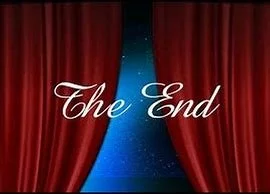Everyone needs space to write. Personal preferences and styles are important in your decision of where you choose to write. Here are some things that have worked for me. If something sounds interesting, give it a try. If it doesn’t work with your style, try something else. The right answer is what works for you and makes you more creative and productive.
Your Writing Space
I write best in my office in front of my big window that looks out on the woods. I know that’s my work spot. Sometimes, I take edits outside on the deck for a change of scenery, but serious work gets done in the office. I think authors need to find a space of their own where they can keep their notes, rough drafts, and know that is the writing area.
Background Noise
I’ve had a day-gig for many years, and it is NEVER quiet. I’m used to background noise and interruptions. I can’t work in complete silence. I have to have music on. I usually listen to classical or jazz for writing. Pop and rock are reserved for research and editing. I’m an #80sGirl, so I always go back to retro classics, and the dogs and I often have dance-offs when I find I’ve been sitting too long.
Writers’ Retreats
I am not able to do writers’ retreats. They look like so much fun, but I need to be by myself to plot, write, and revise. I did go to a plotting party once, and it was helpful. Everyone brought something they were working on or wanted some ideas for. We had lots of food and shared ideas on everyone’s WIPS (work in progress).
Critique Groups
I also have a critique group that meets once a month and some amazing beta readers who provide feedback and ideas. Writing is a solitary effort, but you do need your crew from time to time. These folks help with me with overused words, plotholes (where the story just doesn’t work), and pesky typos.
Distractions
I am easily distracted. I will go search for something on the internet, and the next thing I know, I’m checking out Facebook or watching crazy dog videos. I have to make sure I stay focused when I’m trying to finish a draft. I mark where I need to look something up in my manuscript and go back to do the look ups later. If I find my mind wandering or I’m losing focus, I do try to take a quick break. A quick bit of exercise or stretching often helps.
Have a Routine
I try to write or edit daily, especially when I’m working on a book. I’m able to make progress, and the plot/characters are front and center. The longer I’m away from something, the more I have to play catch up before I can be productive again.
This is what works for me. If you see something you like, give it a try. Find the place and the schedule that works for you. Happy Writing!
















